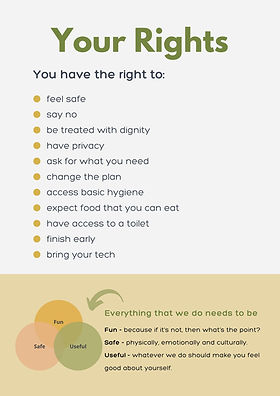|
Last week I facilitated an intensive school for first year social work students focused on developing foundational interviewing skills. Comprised of roughly 230 graduate and undergraduate students, these five-day intensives are exhaustive, yet super fun. And we're doing it all again this week focusing on experiential group work. I personally love the balance between engaging with those who bring extensive human services experience, and those wide-eyed and new to the helping professions. After all, it is the "beginner's mindset," that leads us to new opportunities. Along with my dearest colleague, Friend of the Centre, and former PhD supervisor, John Paul Healy, I read loads of Jane Addams, John Dewey, Virginia Satire, William James, and Myles Horton over the last year. We considered how we could best bring in more of the foundational experiential and pragmatist philosophies to our teaching during the social work theory and practice subjects. During this one, I was reminded of an awesome idea I didn't know would translate so well to students from a range of backgrounds. On Tuesday afternoon, we worked in breakout groups with a 1:16 ratio to practice how social workers can deliver their role induction. Whether one works indoors or out, adventure-based or via talking methods, the role induction is an initial phase to prepare participants for what is next to come. Depending on one's cultural context, this may involve discussing confidentiality, mandatory reporting, and what we do as practitioners if our work becomes ineffective. Omitted quite often from discussions of role inductions is how the practitioner elicits a participant's sense of hope by describing their work. The role induction is a therapeutic tool, as well as an important task for consent. As I did my best to model the purpose of "practicing" the role induction, one student asked, "How should we talk about safety? My safety? The participant's safety?" I, for one, don't love shoulding on people but I was missing an important point. What a brilliant question! I was reminded of Gippsland Adventure Therapy's 'role induction.' When a new participant engages, they are shown a Venn diagram (below) saying their collaborative work together should be Fun, Safe, and Useful. They also show each participant their rights during their adventures. I'm not sure if Doug Moczynski will agree, disagree, or correct whether or not I get this right, but I pulled up Gippsland Adventure Therapy's website and discussed it with the students. Here are some thoughts: Fun: Outdoor therapy practices should be engaging and evoke curiosity in the process. Fun and playfulness are important to positive youth development and facilitators can construct emotional playgrounds. Safe: Outdoor therapy experiences must be physically, psychologically, and culturally safe for everyone, including the participant, the provider, and people/living things who may stumble upon our adventures. Useful: At the end of the day, if we can't provide some sort of evidence to suggest our work is useful - as defined by the participant, not the worker - we may be missing something. That afternoon, I observed students creatively tailoring the Fun, Safe, Useful idea to their own work. After practicing how we can describe the responsibility of preserving one's self-determination, human rights, confidentiality, autonomy, and safety, one student said during a simulation: "At the end of the day, I just hope our work feels engaging, safe, and effective for you. This can be accomplished in many different ways. I hope we can use these ideas as guardrails as we keep reflecting on our experiences together. What do you think?" How we talk about outdoor therapy with new participants is much more important than an administrative task. It's a moment to elicit hope and expectancy. I'm curious to know how others describe their work to prospective service users. Excited to test this further in the future. So simple and concise, but could be a useful tool moving forward. Be sure to let us know how you begin first meetings with those you work with in the outdoors.
Until next time, Will
0 Comments
Leave a Reply. |
ContributorsThese blogs are written by Friends of the Outdoor Therapy Centre and those willing to showcase their innovative work. We invite you to #Read and #Share their work however you see fit. Archives
July 2024
Categories |

 RSS Feed
RSS Feed
